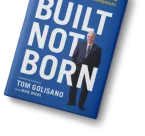What is an SOP?
An SOP, commonly known as the statement of purpose, is a long piece of statement that you are obliged to provide while applying for admission to an institute for any level of education. Usually ranging across 500-1000 words, this comprehensive statement summarizes your academic and professional achievements, future aspirations, and the university’s role in helping you accomplish them. Each of these factors should be intertwined together concisely and clearly so that the admission officer can get an apparent idea about the intentions of the aspirant. In short, the way you write an SOP can either make or break your possibility of getting an approval letter.
How important is an SOP for MBA aspirants?
MBA aspirants often face complications while drafting the right statement of purpose, simply because an MBA program requires a more detailed statement than other master’s programs. A well-written SOP is a primary way to possess a successful MBA application because it makes you outshine other students having similar professional credentials and aspirations. It is your only chance to prove your worth and secure admission into your dream university. So if you are an MBA aspirant who is concerned about getting the best possible teaching and research opportunities in a prestigious institute, an exemplary SOP will be the ticket to your dreams.
Tips for writing an exceptional quality SOP to get admission in an MBA program:
Writing an SOP is not an easy task, but following the tips given below will surely assist you in writing an exceptional quality SOP, which will ensure your admission into an MBA program.
1. Read the instructions carefully
Many people don’t bother to read the instructions given by the university before writing a statement of purpose for them. No matter how many different universities you are applying to, you have to know what kind of information they are looking for from you. Every University is looking for something different from their students, and you need to understand their requirements. So, make sure to read their guidelines precisely and customize your SOP based on them.
2. Be concise and to the point
A lot of people try to include too many projects and achievements in their SOP, which can make them look unaware of the content requirement and negatively impact the admission process. Remember that your projects and achievements should be a part of your resume. At the same time, your statement of purpose is a specific statement that you have to make to project a story on why the committee should consider you the right candidate. So, try not to repeat the same information from your resume and create a concise and to-the-point statement of purpose
3. Showcase your uniqueness
When you are looking for an MBA program at an eminent university, there are also a thousand more candidates that are applying for the same program. So, the key to writing a perfect statement of purpose is to be unique from others and stand out in the minds of the admission committee. Instead of writing the obvious statements that every other candidate writes, you can start your SOP with a quote or anecdote that relates directly to your chosen program to make it a little more interesting.
4. Write in a slightly formal, but conversational tone
Another important thing you have to keep in mind is to maintain a formal and conversational tone throughout your statement of purpose. Your tone and style is the basic thing that makes your writing readable and helps in communicating better. Try not to use colloquial language too much and repeat the same words again and again. Also, ensure that your statement of purpose should be written in active voice and altogether avoid the usage of passive voice. These certain rules can make a huge impact on enhancing the readability level of your SOP
5. Do not list too many activities
Listing too many academic and work activities can make your statement of purpose sound monotonous. Instead, you can highlight some specific activities which contributed the most to your learnings. Convey how you developed your career goals by explaining your experiences and building the background of your passion all the way through the undergraduate program. You can skip your school activities as they don’t hold much significance in your postgraduate program.
Most common mistakes to avoid while writing an SOP for MBA :
These are some common SOP mistakes that can kill your chances of getting approved, which is why you should avoid these types of mistakes at any cost while writing the SOP for an MBA program.
1. Trying too hard to sound impressive
Writing an SOP can be overwhelming sometimes due to the kind of work it involves. In addition, many people tend to use fancy words to make them sound exotic while writing an SOP. But a statement of purpose portrays your genuine personality, so it should be easy to read to communicate clearly and effectively. Thus, make sure to give yourself appropriate time to craft an SOP with a personal touch to make the reader feel connected to your journey.
2. Not being aware of the admission committee’s requirements
Using the same draft for multiple universities indicates that you do not have any knowledge about the requirements of that particular university. You have to keep in mind that every university’s admission committee has different demands for its program. So, your perspective needs to change according to the university you are applying for. This will show them that you are serious about this opportunity and have done the mandatory research about the program and university.
3. Making only statements and not showing the experiences
A common mistake that most people make is that they are only making statements about their various activities and not showing the experiences they obtained by them. Rather, write about just two or three significant activities and go really deep in showing them the experience you had while doing them. For example, tell them what kind of obstacles you endured and what you learned from them. These types of issues are not covered by your resume, which gives you a chance to bring something new to the table.
4. Not checking plagiarism
Plagiarism is the biggest blunder that you can make while writing a statement of purpose. You may have done it intentionally or unintentionally. Either way, it is entirely wrong and can get you to the straight rejection. Every university goes through a plagiarism inspection to ensure the statement of purpose is copied or not. For this reason, you can check your SOP on any plagiarism-checking software before submitting it to the university.
5. Making grammatical errors
The university understands that you are not a professional writer and making some grammatical mistakes in writing is normal. But at the same time, it reflects that you don’t care enough about getting into the program even when you have so much time to work on your SOP. This is something you probably want to avoid at any cost. So, make sure to check your draft on Grammarly or get it reviewed by any professional writer. It will show the admission committee that you care about their impression of the SOP.
Must include points in an SOP for MBA program :
Below are the questions that you have to answer chronologically while structuring your SOP format. Each of these points can be covered in one or more paragraphs, but try to cover every point because these are general things that any university wants to read in an SOP. If you follow this format in the given flow of the order, then you can consider yourself to be in a better position as compared to the other applicants.
1. Who are you? What are your personal and academic interests?
Start your SOP with a catchy introduction that builds the reader’s curiosity to read more about you. You can talk about your personal interests and hobbies in a few lines to give a brief about your personality. Next, mention your academic field of interest and what encouraged you to pursue this specific field. Your introduction is an important aspect that contributes to creating the interest of the reader, which is why conveying a strong message in this paragraph is the primary manner to write a compelling SOP.
2. What did you do during your previous academic background?
Elaborate on your previous academic background, which is important to show what you have learned throughout your bachelor’s. Tell them how your studies led you to apply for an MBA program. You can include all your projects and internship experiences that were truly valuable in shaping your career goals. In the case of extracurricular activities, briefly clarify them to showcase your diversity only if your chosen university has any clubs related to them. Also, keep in mind that all your experiences should be correlated to each other in order to create a constant flow.
3. Why do you want to do an MBA?
An SOP is a bridge between your past experiences and the future goals you want to achieve with this program. Explain how does your past background connects with this MBA program and how this will satisfy your career interests and needs. Also, mention any specific thing that you want to learn or experience during the program and what your expectations are from them. Having all this information about the program implies that you are genuinely interested in pursuing this program and ready to work hard for it. Make sure to use the right words to show that you have done your research on the program and want to join it with ultimate keenness.
4. What are your future plans after doing an MBA?
In this section, you need to make a clear articulation of your ambitions and career goals. For an MBA, you can talk about the knowledge and skills you want to gain or any particular research interests you want to pursue through this program. Another major question that you have to answer is your plans after completing this MBA program. It can be about any company you want to join, any startup you want to set up, or to get into further research or academia. This point portrays your purpose behind your interests and willingness to get into this program.
5. Why do you want to do an MBA from this particular university?
An important question that you have to answer is why you are choosing this particular university out of all other universities for your MBA program and how this will help you in achieving your goals. There can be a lot of major factors contributing to your inclination towards this university, be it their course curriculum or academic facilities. So, research thoroughly about your chosen university and point out their special features to demonstrate your eager desire to get approved by them.
6. Why are you the right candidate for the MBA program?
The last point you have to mention is why this program is right for you and why they should select you instead of other candidates. Universities want you to show them how you can contribute to their MBA program and the university. In this paragraph, you have to make a positive impact on the admission committee by summarising your strong points shortly and crisply. Then, you have to explain to them in a convincing way that why you are a worthy candidate for their program and how they will not be disappointed by choosing you. At last, you can finish your statement of purpose by telling them how thankful you will be for their approval of your admission application.
Final Words :
Now that we have explained what the SOP is and how it influences your admission application, you should know that there is no particular right way to write a statement of purpose. Do not try to make your voice tone or style into a particular structure; rather, use your original style, which will help you stand out. Always remember that prospects who project authenticity with quality are the ones who have more chances of getting admitted. So, make sure to precisely follow the above guidelines and take your time to figure out what is best for you.
We hope this blog will help you in writing an excellent SOP for MBA that will open the doors to international education for you.
Frequently Asked Questions
Question 1: Does an MBA program require a Statement of Purpose?
Answer: Yes! The Statement of Purpose is a mandatory document when trying to apply for an MBA program at a foreign university.
Question 2: How does the MBA SOP differ from other SOPs?
Answer: In certain areas, the SOP for MBA differs from the other SOPs. Since most MBA programs require candidates to have job experience, the SOP frequently focuses on their professional history.
Question 3: What advice would you give to someone preparing an MBA statement of purpose?
Answer: The finest advice for writing an SOP for MBA is never to brag or talk about oneself needlessly. Always stay sincere to yourself!
Question 4: What are the three distinct SOP format types?
Answer: SOPs are divided into flowcharts, step-by-step, and hierarchical steps. Depending on their complexity, some business processes are better adapted to specific types than others.
Question 5: What should the Statement of Purpose include?
Answer: The five components of administrative SOPs, in particular, is the title, Table of Contents, Objective, Operations, Quality Control, and References.































